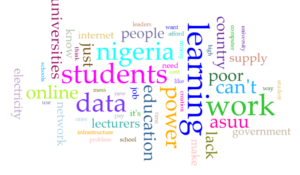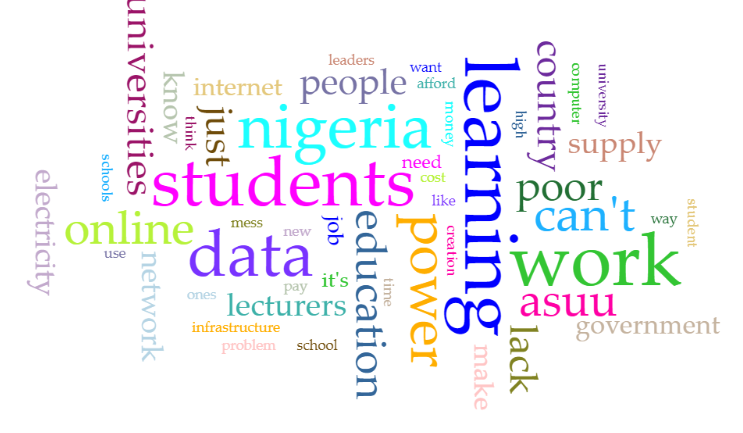A Comparative Study On The Representation Of E-learning Pre & Post Pandemic On Nigerian Twitter Space.
Chinemelu Nwokike

Abstract: The world has been reshaped by the internet and E-Learning is already integrated into education in developed nations. E-Learning makes higher education more accessible to unique populations such as parents with children, service personnel, students with full-time jobs and those with disabilities. It is also cost-saving as it eliminates the often expensive logistics of having the lecturer and students in the same location. Thus there is a need for a developing nation like Nigeria to invest in E-learning.
This study is an exploration of the discourse around E-learning. Guided by a conceptual framework in digital humanities I deployed relevant digital tools and macroanalysis methods to examine the tweets and reactions of a section of Nigerians on social media. The analysis discusses how Nigerians perceive the concept of E-learning along with problems like infrastructure as previous studies have revealed(Bugi, 2012). The study concludes that Nigerians showed a heightened interest in E-learning as a topic during the pandemic lockdown but there was significant indifference a year after the lockdown was lifted.
The full publication is part of the academic work leading to the award of a postgraduate diploma in Digital Arts & Humanities at UCC can be read here.







